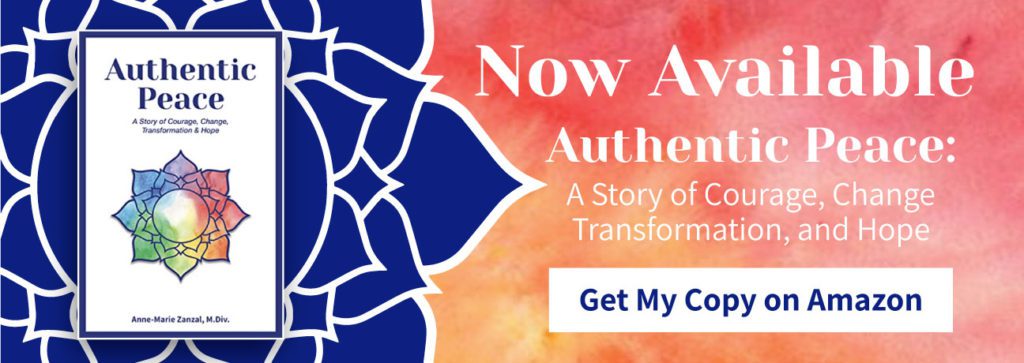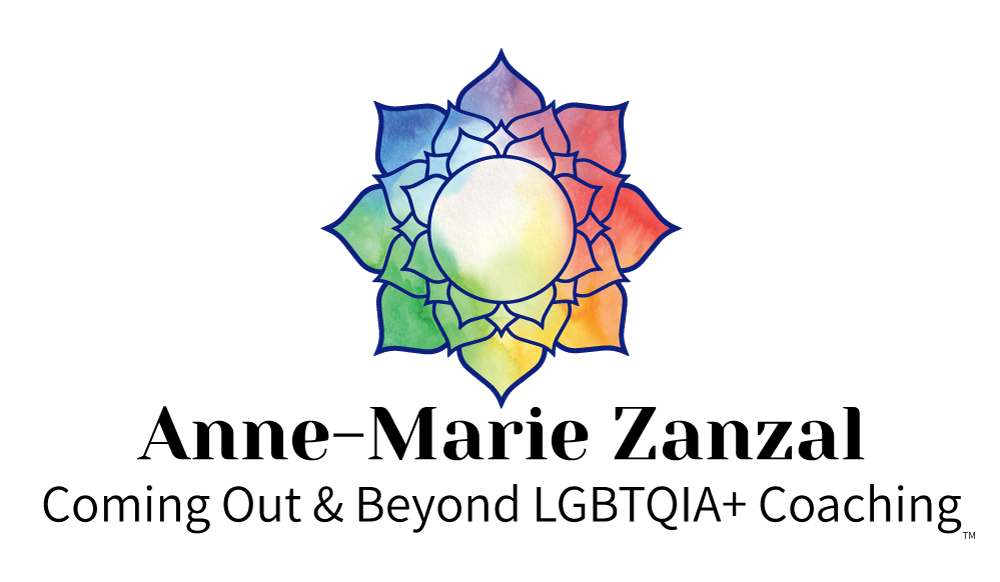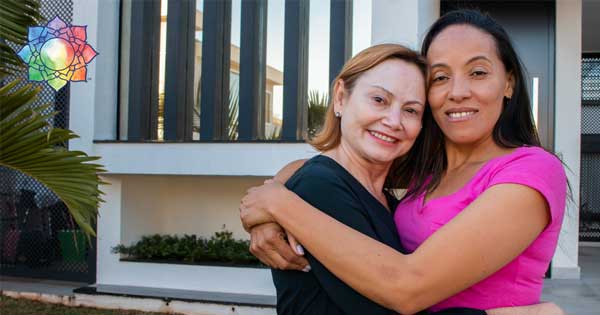When we have our first lesbian relationship or not, navigating a queer relationship is very similar to any relationship. We can’t expect it to be always magical because we have partnered with the same sex. It can feel that way, especially in the beginning, but it takes work and time just like any other relationship.
I don’t know if it’s always possible to have a truly healthy first lesbian relationship. It very much depends on the two people that are in it. For it to be healthy, it will take both people taking the time to make the relationship thrive. Healthy relationships need to be on the same page and it takes a commitment, to be honest with each other. We also have to be clear on what we need to learn, and ask for what we need and want in a relationship, and how to be our authentic selves alongside someone else.
Just because we are no longer dating men, doesn’t mean dating women will be any easier. All of us are attracted to people that mimic our primary caregivers in some way. Sometimes women in their first lesbian relationship will date someone a lot like their ex-husband. Changing sexes does not change what you are attracted to. Everybody does this and it can take time to learn what is healthy and unhealthy and what is actually good for you in a relationship.
Notice the Red Flag that Stops Healthy Lesbian Relationships:
If a partner:
1. Minimize your thoughts and feelings.
2. They shame you for your queerness (maybe because it’s different from theirs), your stage in your journey, or for dating men in the past.
3. When you have someone who loves you or says they love you, but then they start disappearing.
4. They have an active addiction or untreated mental health issues and refuse to do anything about it and won’t seek help.
5. Any type of abuse (Physical, Emotional, Sexual). Take this seriously. You don’t deserve it and it’s never okay.
6. Inconsistency. They are hot and cold, always giving you mixed signals so you never know where you stand..
7. They are possessive of your life and time. They might be upset you have children and don’t like you going to their games or spending time with them. Or, they don’t like that you have hobbies and friends outside of the relationship. This is a serious red flag unless they are willing to work on it and actually do.
Here are Some Green Flags For a Healthy Lesbian Relationship:
1. They are able to discuss their feelings about their past and present life. They are open and authentic.
2. They are psychologically finished with previous relationships. They are emotionally available for you and your new relationship.
3. They express their fears and vulnerabilities
4. They maintain their friendships and family relationships (if they can) and strive to make those healthy as well.
5. They are able to hear constructive feedback without getting defensive.
6. They want to care for you and support you in your life without being controlling. They want you each to be your own person and then choose to be together because it enriches your life, not because they think it completes it.
7. They resolve conflict in a constructive manner or are willing and working on doing so. It’s a skill we have to work on.
8. They communicate their needs and respect yours. They understand boundaries.
9. They are willing to seek professional couple support when you are unable to navigate a conflict on your own.
Work on Yourself Too
In any relationship, we have to make sure we are doing our part. WE have to make sure we are ready to have a healthy relationship It’s important that we take the time to observe and consider the green and red flags in ourselves too.
We have to ask ourselves Am I wanting to support my partner or control them? Am I respecting their individuality? Am I being open and authentic with them? Do I share my feelings, fears, emotions, and vulnerabilities?
We know that a partnership takes two people, and we all have things to work on to be healthy.
Some of us really struggle with codependency or an anxious or avoidant attachment style. It is important to seek help early when we see things come up in our relationships if we love the person and want to do what we can to work it out.
There’s no shame in having issues or struggling with certain things. We all live in relationships with others and it’s not easy. It is, however, important to get help when we need it. Communication skills can be learned and we’re not alone for many of us our background left us ill-equipped to set boundaries and build thriving relationships.
The Emotional Aspect Might Feel New
A lesbian relationship can also be different in a lot of ways than a relationship with a man. Some women are very emotionally available and open, so there is a lot of talk about emotions. Some can’t do that at all. It depends on the person.
But, that emotional availability might be very new for some of us if we have spent most of our life with a man. It can be harder sometimes than a straight relationship if we are often being vulnerable with each other, discussing things, and taking care of each other. There may be so much more talking and processing. It might be difficult or exhausting, especially if we were married to a man who talked about nothing.
That doesn’t mean that the emotional processing is bad. As stated above, being able to freely talk about how we feel and express our needs is very important in a relationship, but it can be surprising and even draining if you’re not used to that level of intimacy and communication. This is a process, and something we get to learn, and it’s ok to ask for help if things do come up.
Partners Are Not Here to Complete Us, They Aren’t Our Other Half
One of the most important things to remember when building a healthy relationship is that we are already whole. We do not need this person to complete us or fix us. Relationships are at their best when we know ourselves and our needs and choose to be with another person because they make our life more enjoyable, richer, and more vibrant, but not because we need to be fixed or we want to control. Loving another person is an active choice in the long term. If we can get to a space of love and interdependence, a healthy relationship is definitely possible.
Coming out later in life brings a lot of firsts that we may or may not feel ready for. Having a healthy first lesbian relationship, or a healthy lesbian relationship at all definitely requires work but can feel strange to navigate when everything is so new.
We are not alone in this discovery. While I am not an expert in relationships, I am an expert in coming out and the journey to find and create a healthy and authentic life.
Learn more about embracing the word lesbian, and how to overcome your first lesbian heartbreak.
I offer group coaching and workshops to support groups for women coming out later in life. You can learn more about the services I offer here, find a variety of helpful resources here, or book a FREE discovery call with me here. Ultimately, my goal is to help as many women as possible to be empowered to live their authentic lives, to meet you where you are on your journey, and bring a listening ear, and support along the way.



Recent Comments